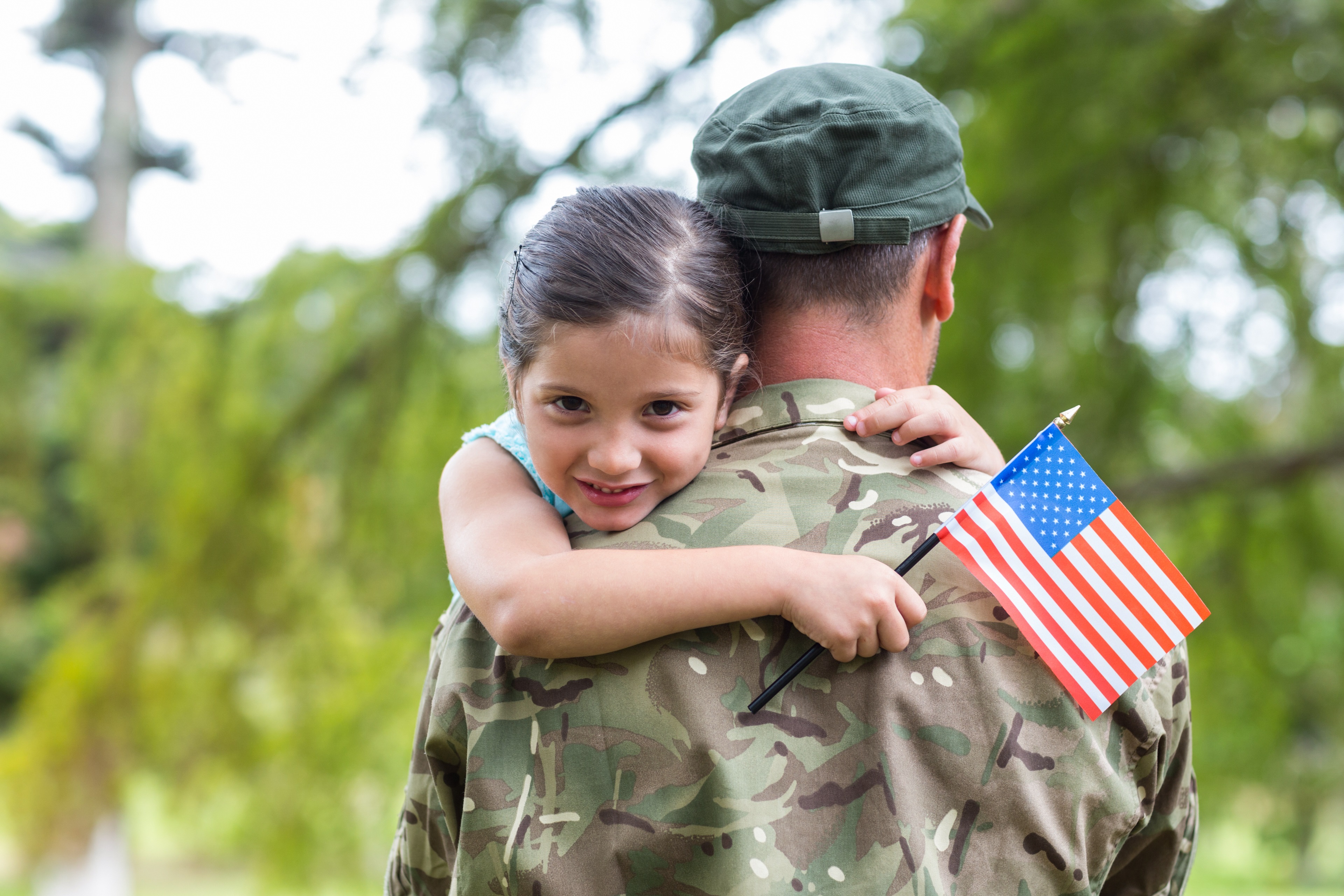If it takes a village to help raise a child, then it takes an army to assist a military family. Active-duty service members are often in need of support when adjusting to situations that are stressful on them and their families.
Those in the military are a tight bunch. When a spouse is deployed overseas or put in perilous situations to fight for the freedom afforded to citizens of the United States, their vacancy at home is filled with caring friends and neighbors who swoop in to make sure the family at home is coping.
The Military Life
The Kildron family of Orlando says they are fortunate that they have had a large support system through the years. Lance Kildron, Colonel, USAF Commander, ROTC detachment 159, University of Central Florida and F-16 Pilot, has been involved in the military for over 20 years. Together with his wife, Karen, and their four children under the age of 18, the family has soldiered on through all the highs and lows that come with the military lifestyle.
Lance joined the Air Force because he had a passion for two things: flying and his country. Currently on a three-year assignment, he commissions 2nd lieutenants into the Air Force. But when he is deployed, he is able to use his piloting skills. “When deployed I was in direct combat with the enemy,” he says. “My family knew. That was a big stressor on my wife.”
Married 22 years, Karen and Lance have experienced numerous deployments and relocations to such places as Korea, Italy, Virginia, Georgia, Wyoming, and Nevada. Lance has had 14 assignments over the last 22 years. Not knowing when he will or will not be home for long stretches of time takes a toll on the entire family.
“During the Italy time I had a two year old, a four year old, a nine year old, and a 13 year old. The part prior to when he left was hard. They were going to go, then not going to go,” says Karen. “When he went on an unscheduled combat deployment overseas, he left the house and I didn’t know when he was coming back.”
A Network of Supporters
One especially stressful event occurred when Karen was eight months pregnant. The family was stationed in Alaska, and Karen had just completed the set up of their new home. “I didn’t know anybody there,” she says. After picking up Lance at the airport, Karen began to experience pains. They drove straight to the hospital, where she delivered the baby early. “He was premature. On top of that, we had our three year old with us and only one car.”
That’s when another military wife came to the rescue. She drove 30 minutes through snow and -20 degree weather to help. “She came and picked up our daughter and kept her for a few days until Karen got out of the hospital,” Lance adds.
But there is usually some level of comfort during new assignments. “Every time you move, there is typically someone there you knew from a previous assignment,” says Karen.
Lance remembers losing a pilot during his time as a commander. He says the families rallied to offer assistance to the widow and her family. These struggles that military life bring can take a toll on the adults in the family, but it seems to be hardest on the kids. “We prepare the kids ahead of time,” says Lance. “Now we have Skype and talk as much as possible on the phone and Internet.”
While it’s not always easy, being a military kid is also a good thing. The kids bond just like the wives do. “Being a military kid is both challenging and rewarding. My dad was just recently deployed for a year, and during that time, I wasn’t very happy. But the love and respect I have for my Dad grew stronger. During those moments, when all I wanted was for him to be home, I realized how much I love him,” says Lance’s daughter.
Someone To Talk To
In many communities, caring counselors are available to help military families adjust. Tracy S. Ramos, MA, LMHC, of MetroWest, is one counselor who has been helping families since 2009. Having been in the Navy for four years, he understands military life. “My dad was in the Army. The military has been a huge part of my life and has been good to us,” says Ramos. “It taught me courage and independence.”
He knows that military members who are deployed overseas can be gone for months and months before returning home. “The difficulty I’ve seen is readjusting to coming home. They come back and they’ve experienced the tragedies, the loss of friends, and hearing bombs every day. They’ve been in a constant fight-or-flight syndrome,” says Ramos. “Even at a desk job, they are still in that mode. It’s a huge adjustment, usually survivor’s guilt.”
Coming back to family is also an adjustment. Sometimes they come back to a divorce situation; their spouse has met someone else. Many experience post-traumatic stress disorder. “The hardest part is readjustment. Connecting to their relationships again,” says Ramos. They think their family won’t understand what they’ve been through. “We are helping to build a bridge between the family members.”
Deborah Galvin, MSW, RCSWI also works with Ramos to help families cope. “Military service members and their families frequently experience anxiety, depression, loneliness and PTSD. Relationship issues can develop when a service member is reintroduced to life at home after being gone for long periods during service to our country. Counseling is an essential part of the integration. Most military service members and their families do extremely well in counseling when issues are properly addressed,” says Galvin.
And, of course, there is the built-in village of supporters who offer love and support to their fellow men and women in service.




Comments